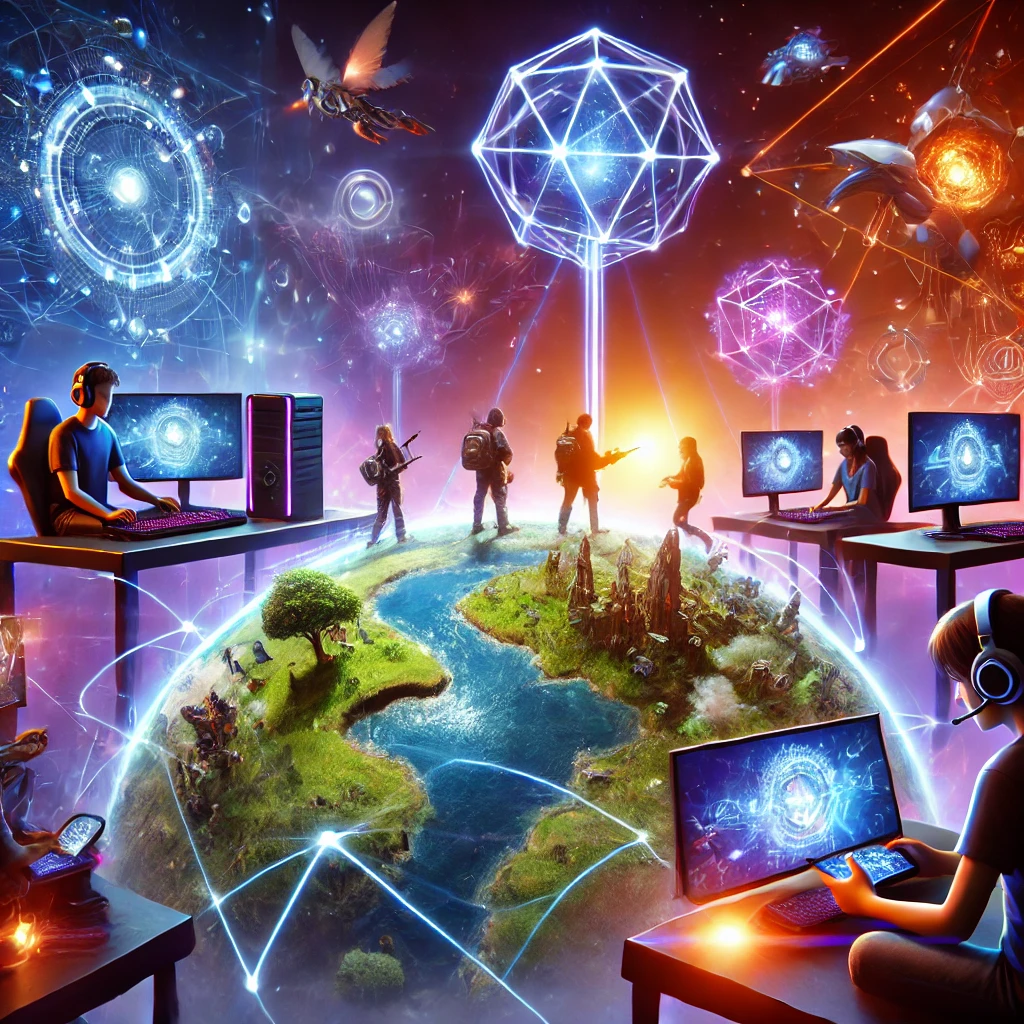The gaming world is changing quickly, and one of the biggest shifts lately is cross-platform play. This feature allows players on various devices to join the same game, breaking barriers and creating a more inclusive gaming experience. This article delves into how cross-platform play is revolutionizing online gaming accessibility, the challenges it faces, and its impact on the industry and gamers.
What is Cross-Platform Play?
Cross-platform play, or “crossplay,” lets gamers on different devices—PCs, consoles, and mobile phones—play together in the same game. In the past, gaming networks were separate; PlayStation users could only play with other PlayStation users, and the same went for Xbox and PC gamers. Crossplay breaks these silos, allowing everyone to interact in a shared online environment.
How Cross-Platform Play Enhances Accessibility
1. Expanding the Player Pool
Crossplay connects users from various devices, increasing the number of players available for any game. This results in faster matchmaking and a more dynamic gaming community. For niche games, such as indie titles or competitive esports, crossplay ensures a steady flow of players, making it easier to find opponents or teammates.
2. Reducing Financial Barriers
With crossplay, players don’t need to buy specific hardware to play with friends. Someone with a high-end PC can easily team up with a friend using a console, and mobile gamers can join in too. This makes gaming more accessible, especially for those who can’t afford expensive systems.
3. Bridging Geographic Gaps
Crossplay not only connects devices but also people from different parts of the world. It builds global communities by removing the technical barriers that once kept players apart.
Crossplay in Action: Success Stories
Several games have successfully implemented cross-platform play, setting a standard for others:
- Fortnite: As a trailblazer, Fortnite enables players on PCs, consoles, and mobile devices to compete together, which has been crucial to its worldwide success.
- Call of Duty: Warzone: This game features seamless crossplay, allowing players on different platforms to cooperate and compete, creating one of the most active gaming communities.
- Minecraft: The “Better Together” update unified the game across various devices, reinforcing its appeal as a universal sandbox.
Challenges of Cross-Platform Play
Despite its benefits, crossplay implementation comes with its own set of challenges:
1. Technical Compatibility
Different devices have varied hardware capabilities, input methods, and network systems. Ensuring smooth gameplay and balanced performance for all players is challenging, especially when considering both high-end PCs and less powerful consoles or mobile devices.
2. Input Disparity
A major issue in crossplay is the difference in input methods. For example:
- PC gamers using keyboards and mice often have a precision advantage over console players using controllers.
- Mobile gamers relying on touch controls may struggle in fast-paced games.
To tackle this, some developers offer separate matchmaking for different input types or add aim-assist features for controller users.
3. Security and Cheating
Crossplay can introduce security issues. Some platforms have higher instances of cheating, and maintaining fair play across all devices can be complex.
4. Player Experience
Balancing the player experience across different platforms and ensuring that everyone has a fair chance can be tricky. This requires ongoing adjustments and updates from developers.
In conclusion, cross-platform play is transforming the gaming landscape by making it more inclusive and accessible. While there are challenges to overcome, the potential benefits for the industry and players are immense. ## Platform-Specific Policies
In the past, companies like Sony, Microsoft, and Nintendo have been hesitant to work together. They saw crossplay as a risk to their unique systems. Although opinions are changing, there are still issues about sharing money and player data that cause problems.
The Role of Developers and Publishers
Making cross-platform play work relies heavily on developers and publishers. Games need to be created with compatibility in mind, and publishers must push for crossplay with the platform holders.
Key Steps Include:
- Unified Player Accounts: Many crossplay games, such as Fortnite and Rocket League, ask players to set up unified accounts (like Epic Games accounts) to keep track of progress and purchases across various platforms.
- Cross-Progression: Allowing players to transfer their progress, achievements, and in-game items across devices for a smooth experience.
How Crossplay Benefits the Gaming Industry
Boosting Engagement and Retention
Games that support crossplay usually have higher player retention rates since friends can play together no matter their device. This social element keeps players engaged for longer periods.
Expanding Market Reach
Developers can promote their games to a larger audience by not being restricted by platform-specific limitations.
Fueling Esports
Crossplay is essential for the growth of esports, ensuring that competitive scenes aren’t split by platform, leading to larger and more diverse player bases.
The Future of Cross-Platform Play
As technology advances, cross-platform play is expected to become standard. Key developments driving this trend include:
- Cloud Gaming
- Services like Xbox Cloud Gaming, Google Stadia, and NVIDIA GeForce Now are designed to be platform-neutral. They let players stream games on any device, making traditional platform limits irrelevant.
- Improved Networking Standards
- The rise of 5G and other advanced networking technologies will lower latency and enhance connection quality, making crossplay experiences smoother.
- Developer Tools
- Game engines such as Unreal Engine and Unity now offer built-in support for cross-platform development, simplifying the implementation of crossplay from the start.
Conclusion
Cross-platform play is not just a technical feature; it’s a bridge to a more inclusive and connected gaming world. By removing barriers between platforms, it ensures gaming becomes a truly universal medium, accessible to everyone, regardless of their hardware or budget.
As the gaming industry adopts crossplay, players can look forward to a future where their device choice no longer dictates their gaming experience. In this interconnected future, the focus shifts from what you play on to how you play—and who you play with. The future of online gaming accessibility is promising, and cross-platform play is leading the way.


